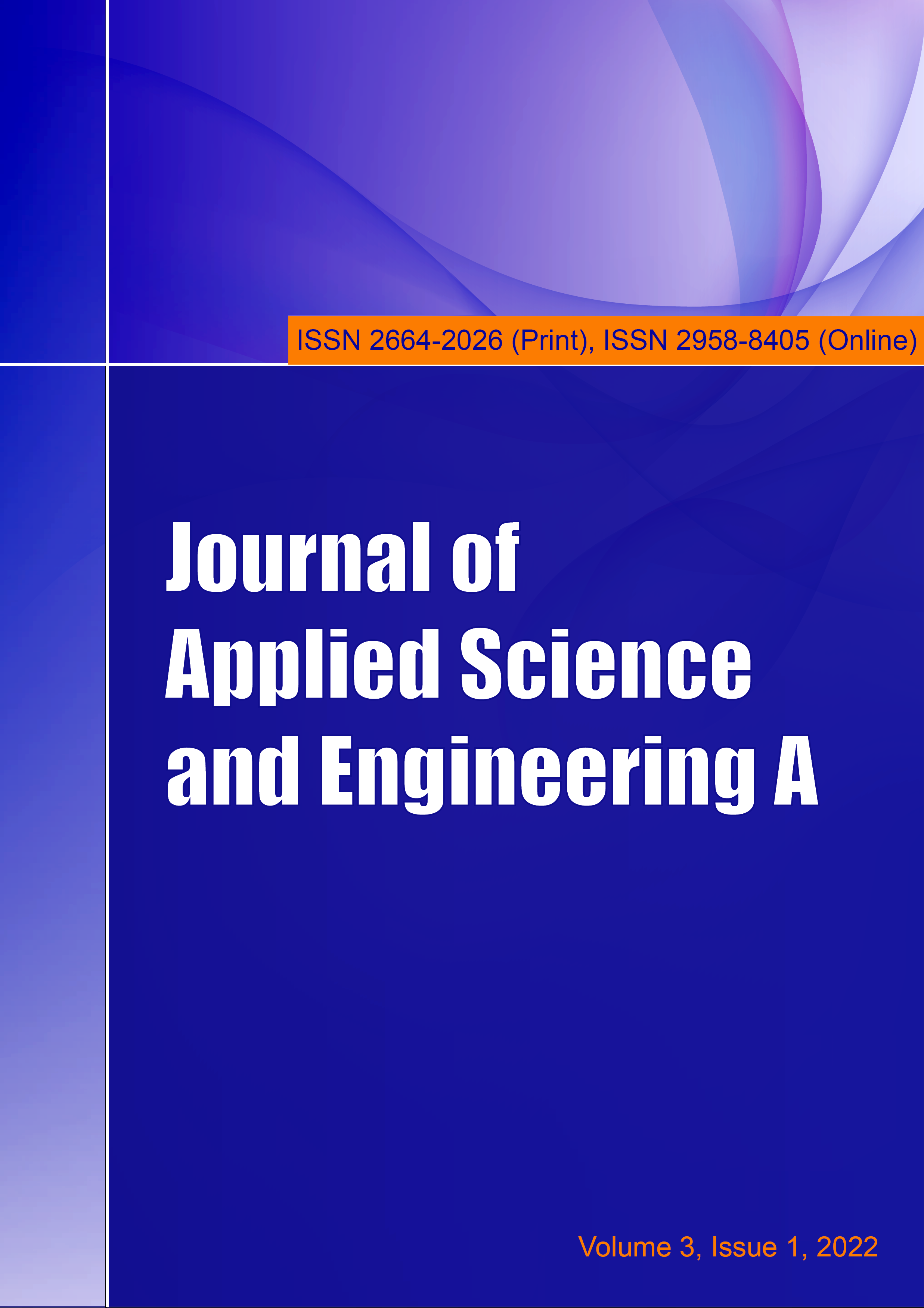Thermal free-surface immersed-boundary lattice Boltzmann method for free surface flows with a liquid-solid phase transition
DOI:
https://doi.org/10.5564/jasea.v3i1.2475Keywords:
Free surface flow, heat transport, ice melting, immersed-boundary, lattice Boltzmann methodsAbstract
This paper reports on the progress of the liquid-solid phase transition modeling of water in open channel flow by using the lattice Boltzmann method with the immersed boundary modification. The phase transition in a fluid flow has a moving interface between the liquid and solid state, which leads complicated treatments in existing numerical models. By applying the immersed boundary modification in the lattice Boltzmann method and the non-iterative enthalpy approach for the separation of the states, the moving boundary of the melting or solidification front is solved without any difficulty. The ice bed and the submerged ice cover under dynamic flow conditions is exercised to demonstrate the model performance. The model is extremely suitable in the formulation in terms of its simple and compact framework extendable to any dimensions.
Downloads
319
References
V. Alexiades, Mathematical modeling of melting and freezing process, CRC Press, 1992.
K. R. Sultana, S. R. Dehghani, K. Pope and Y. S. Muzychka, Numerical techniques for solving solidification and melting phase change problems, Numerical Heat Transfer, Part B: Fundamentals, 73-3 (2018) pp. 129-145. https://doi.org/10.1080/10407790.2017.1422629.
H. Hu and S. A. Argyropoulos, Mathematical modelling of solidification and melting: a review, Modelling and Simulation in Materials Science and Engineering, 4-4 (1996), pp. 371. https://doi.org/10.1088/0965-0393/4/4/004
Z. Virag, M. Živić and A. Galović, Influence of natural convection on the melting of ice block surrounded by water on all sides, International journal of heat and mass transfer, 49-21 (2006), pp. 4106-4115. https://doi.org/10.1016/j.ijheatmasstransfer.2006.04.007
K. Iwasaki, H. Uchida, Y. Dobashi and T. Nishita, Fast Particle‐based Visual Simulation of Ice Melting, Computer graphics forum, 29-7 (2010), pp. 2215-2223. https://doi.org/10.1111/j.1467-8659.2010.01810.x
B. Ayurzana and T. Hosoyamada, Phase change simulations of water near its density inversion point by Lattice Boltzmann method, in Proceedings of the 23rd IAHR International Symposium on ice, Michigan, 2016.
C. Huber, A. Parmigiani, B. Chopard, M. Manga and O. Bachmann, Lattice Boltzmann model for melting with natural convection, International Journal of Heat and Fluid Flow, 29-5 (2008), pp. 1469-1480. https://doi.org/10.1016/j.ijheatfluidflow.2008.05.002
A. Badarch, H. Tokuzo and N. Narantsogt, Hydraulics application of the Free-surface Lattice Boltzmann method, in 11th International Forum on Strategic Technology (IFOST), 2016. https://doi.org/10.1109/IFOST.2016.7884225
P. L. Bhatnagar, E. P. Gross and M. Krook, A model for collision processes in gases. I. Small amplitude processes in charged and neutral one-component systems, Physical review, 94-3 (1954), pp. 511. https://doi.org/10.1103/PhysRev.94.511
D. R. Noble and J. R. Torczynski, A lattice-Boltzmann method for partially saturated computational cells, International Journal of Modern Physics C, 9-8 (1998), pp. 1189-1201. https://doi.org/10.1142/S0129183198001084
W.-S. Jiaung, J.-R. Ho and C.-P. Kuo, Lattice Boltzmann method for the heat conduction problem with phase change, Numerical Heat Transfer: Part B: Fundamentals, 39-2 (2010), pp. 167-187. https://doi.org/10.1080/10407790150503495
C. Huber, A. Parmigiani, B. Chopard, M. Manga and O. Bachmann, Lattice Boltzmann model for melting with natural convection, International Journal of Heat and Fluid Flow, 29-5 (2008), pp. 1469-1480. https://doi.org/10.1016/j.ijheatfluidflow.2008.05.002
B. Ayurzana and T. Hosoyamada, Application of the lattice Boltzmann method to liquid-solid phase change in free surface flow: an example of Mongolian small hydropower plant,土木学会論文集 B1 (水工学), 73-4 (2017), pp. I_607-I_612. https://doi.org/10.2208/jscejhe.73.I_607
B. Ayurzana, T. Hosoyamada, E. Tungalagtamir and G. Batzorig, On the development of lattice boltzmann modeling for liquid-solid phase transitions in free surface flows, Proceedings of the Mongolian Academy of Sciences, 58-3 (2018), pp. 4-17. https://doi.org/10.5564/pmas.v58i3.1030
Z. Guo and C. Shu, Lattice Boltzmann method and its application in engineering, 3, 2013. World Scientific. https://doi.org/10.1142/8806
A. A. Mohamad, Lattice Boltzmann method, London: Springer, 2011. https://doi.org/10.1007/978-0-85729-455-5
A. A. Alamyane and A. A. Mohamad, Simulation of forced convection in a channel with extended surfaces by the lattice Boltzmann method, Computers & Mathematics with Applications, 59- 7 (2010), pp. 2421-2430. https://doi.org/10.1016/j.camwa.2009.08.070
S. Hou, J. Sterling, S. Chen and G. D. Doolen, A lattice Boltzmann subgrid model for high Reynolds number flows, arXiv preprint comp-gas/9401004, 1994. https://doi.org/10.48550/arXiv.comp-gas/9401004.
A. A. Mohamad and A. Kuzmin, A critical evaluation of force term in lattice Boltzmann method, natural convection problem, International Journal of Heat and Mass Transfer, 53-5 (2010), pp. 990-996. https://doi.org/10.1016/j.ijheatmasstransfer.2009.11.014.
A. Badarch and H. Tokuzo, Lattice Boltzmann method for the numerical simulations of the melting and floating of ice, in Free Surface Flows and Transport Processes, 2018. https://doi.org/10.1007/978-3-319-70914-7_7
Downloads
Published
How to Cite
Issue
Section
License
Copyright (c) 2023 Ayurzana Badarch, Tokuzo Hosoyamada

This work is licensed under a Creative Commons Attribution 4.0 International License.
Copyright on any research article in the Journal of Applied Science and Engineering A is retained by the author(s).
The authors grant the Journal of Applied Science and Engineering A a license to publish the article and identify itself as the original publisher.

Articles in the Journal of Applied Science and Engineering A are Open Access articles published under a Creative Commons Attribution 4.0 International License CC BY.
This license permits use, distribution and reproduction in any medium, provided the original work is properly cited.




